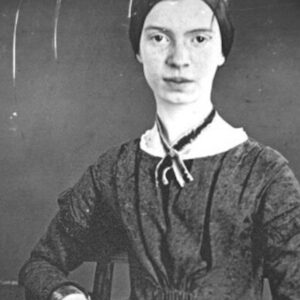I don’t remember when or why I started reading the poems of Poland’s celebrated poet Adam Zagajewski, who died in March at age seventy-five.
I’m guessing I’d read a review of his Mysticism for Beginners which moved me to buy the book, since that’s the earliest collection of his that I own, translated into English in 1997 by his superb translator Clare Cavanagh. Many of the poems delighted me, including the final poem, “I Walked through the Medieval Town” — nearly every line of which offers alternatives, like:
I walked through the medieval town in the evening or at dawn, I was very young or rather old…. I could begin life, mine or not mine, over…
The poem is a crafting of hope in life’s possibilities — of openness to what might be.
Rereading this poem now, along with many others I’ve gathered in Zagajewski’s books over the years, I’m struck by a particular vision often running through them. Of course, any poet who published fifteen collections over forty-seven years will have engaged a variety of themes, moods, moments. But in my current reading of Zagajewski, what’s standing out for me is what I’ll call his “poems of possibility.”
Take “Vita Contemplativa” (in Unseen Hand, 2009/2011), which ends:
So this is it. What we do not know. We live in the abyss. In dark water. In brightness.
Living in opposites (dark water, brightness) implies living in possibility — because any term can generate the possibility of its opposite. Zagajewski plays with this in the opening stanzas of a poem on his equally celebrated Polish contemporary, Czeslaw Milosz. “Reading Milosz” (in Eternal Enemies, 2008) begins:
I read your poetry once more, poems written by a rich man, understanding all, and by a pauper, homeless, an emigrant, alone.
You always want to say more than we can, to transcend poetry, take flight, but also to descend, to penetrate the place where our timid, modest realm begins.
Milosz, in his turn, writing the Introduction to Zagajewski’s 1985 collection, Tremor, had praised his compatriot for abandoning his earliest poetry’s political satire —”noble minded, but often one-dimensional” — and instead embarking “upon a new adventure, a search in a labyrinth where meditation on the flow of time brings together the historical and the metaphysical.”
In a similar vein, The New York Times obituary for Zagajewski cites a 2004 article by the Irish novelist Colm Toibin, opining that “Mr. Zagajewski might have fallen into a canon defined by the bitter legacy of World War II, but he was rescued from it ‘by the great pull in his work between a tragic conscience and a voice always on the verge of bursting with comic pleasure.’” I can’t think of any poem that exemplifies this better than what has been called Zagajewski’s masterpiece, “To Go to Lvov” (in Without End, 2002). Throughout there’s the tragic conscience of the exile (Zagajewski was born in Lvov in 1945, but his family was soon forced to leave, when the Soviet Union took over eastern Poland); but the darker mood is balanced by comic fun like this:
There was always too much of Lvov, no one could comprehend its boroughs, hear the murmur of each stone scorched by the sun, at night the Orthodox church’s silence was unlike that of the cathedral, the Jesuits baptized plants, leaf by leaf, but they grew, grew so mindlessly, and joy hovered everywhere, in hallways and in coffee mills revolving by themselves, in blue teapots, in starch, which was the first formalist, in drops of rain and in the thorns of roses.
In the midst of pain (the speaker says to Lvov “I won’t see you anymore, so much death / awaits you”), the lines above burst with comic possibility: Jesuits baptizing plants, “coffee mills / revolving by themselves,” joy hovering everywhere.
Yes, joy is often a possibility in Zagajewski’s poems. Take these lines from “Three Angels” (in Mysticism for Beginners), which Cynthia Haven calls attention to in her profile of Zagajewski for the Poetry Foundation:
there’s always a little joy, and even beauty lies close at hand, beneath the bark of every hour, in the quiet heart of concentration, and another person hides in each of us— universal, strong, invisible.
I love that image of another person hiding in each of us — the very essence of possibility. The poem goes on:
Wild roses sometimes hold the scent of childhood… Memory lives in the ocean, in galloping blood, in black, burnt stones, in poems, and in every quiet conversation.
Every quiet conversation holds, for Zagajewski, the possibility of memory. And it holds even more, as Benjamin Paloff observed in his 2008 review of Eternal Enemies in The Nation: “Zagajewski attaches himself to a vision of the everyday, but this vision remains vulnerable to invasion by fantasy.”
Nowhere is the everyday’s “invasion by fantasy” more delightfully enacted than in Zagajewski’s “The Greenhouse” (in Mysticism for Beginners), which is also my favorite of Zagajewski’s poems of possibility — maybe my favorite of all poems of possibility. So I want to end by quoting the whole poem. You’ll notice how, within the everyday “dark” and “sadness,” the world suddenly appears “lit differently”; how the imagination creates a new “openness” to other people’s lives; how the greed in one’s heart can give way to an ecstatic good will.
In a small black town, your town, where even trains linger unwilling, anxious to be on their way, in a park, defying soot and shadows, a gray building stands lined with mother-of-pearl. Forget the snow, the frost’s repeated blows; inside you’re greeted by a damp anthology of breezes and the enigmatic whispers of vast leaves coiled like lazy snakes. Even an Egyptologist couldn’t make them out. Forget the sadness of dark stadiums and streets, the weight of thwarted Sundays. Accept the warm breath wafting from the plants. The gentle scent of faded lightning engulfs you, beckoning you on. Perhaps you see the rusty sails of ships at port, islands snared in rosy mist, crumbling temples’ towers; you glimpse what you’ve lost, what never was, and people with lives like your own. Suddenly you see the world lit differently, other people’s doors swing open for a moment, you read their hidden thoughts, their holidays don’t hurt, their happiness is less opaque, their faces almost beautiful. Lose yourself, go blind from ecstasy, forgetting everything, and then perhaps a deeper memory, a deeper recognition will return, and you’ll hear yourself saying: I don’t know how— the palm trees opened up my greedy heart.
Peggy Rosenthal has a PhD in English Literature. Her first published book was Words and Values, a close reading of popular language. Since then she has published widely on the spirituality of poetry, in periodicals such as America, The Christian Century, and Image, and in books that can be found here.





